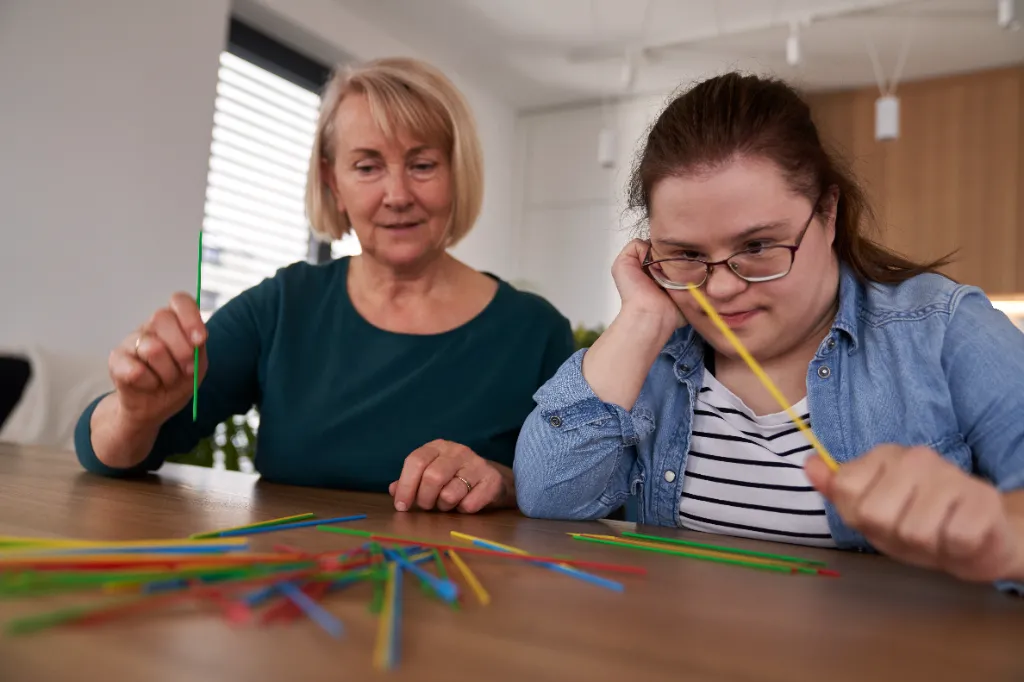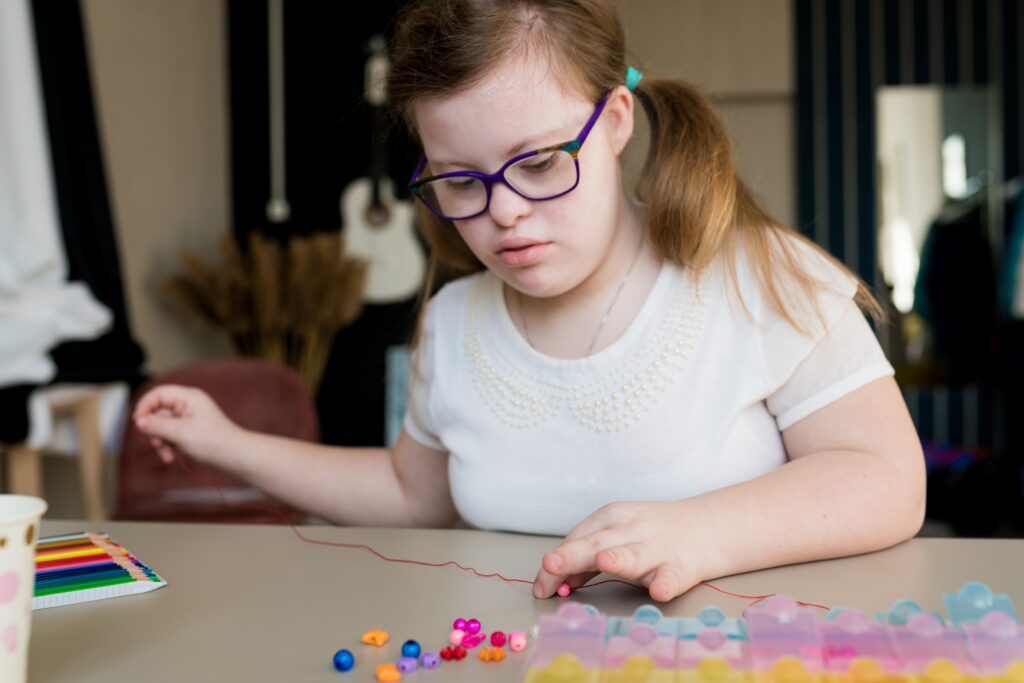The Impact of Learning Disabilities
While not all children develop at the same pace, some children face challenges due to a learning disability. Difficulties with writing, reading, and math are noticeable during the school years, and most learning disabilities are often diagnosed during that time.
School years are when children face the most significant changes in their lives, and learning disabilities can significantly impact a child’s daily and educational life. Disabilities affect multiple aspects of people’s lives, including academic performance, overall well-being, social interaction, and mental health, so it is essential to recognise and address these challenges to get the best possible support for individuals with learning disabilities.
By understanding the challenges individuals with learning disabilities face, we can start providing compassion and proactive support for the community to thrive.
Challenges Faced by Individuals with Learning Disabilities
Learning disabilities, or intellectual disabilities, make routine tasks much more challenging, so some individuals learn to adapt their approaches and coping mechanisms based on their unique abilities and strengths. No two people have the same experiences, which can make the initial diagnosis even more challenging. However, common challenges people with learning difficulties face include:

- Obstacles towards digital accessibility due to poor website designs and a lack of consideration for users’ needs.
- Lack of integrated teaching since the education system is generally not designed to support different learning styles.
- Low self-esteem, especially for children who face microaggressions and stigma in school.
- Language processing difficulties such as reading, writing and processing information.
- Memory challenges which can lead to difficulties in retaining information.
- Difficulties performing routine tasks, which is why individuals adapt their approaches based on their strengths and unique needs.
- Social isolation due to stigma and misunderstanding.
Empowerment Through Education
When people feel empowered, they feel comfortable and capable of exploring new experiences. Educators, parents, teachers, and the community must create a safe space where people with learning disabilities can build confidence and improve social and academic skills to achieve their goals.
Since learning disabilities are part of neurodiversity, individuals ‘think differently’ compared to neurotypical people. It is essential to tailor education plans and strategies to meet people’s unique needs and support them regain their independence by collectively becoming a more inclusive society.
Supportive Strategies for Learning
Although students with reduced intellectual ability may find it challenging to learn and process new information, this does not mean that they don’t have the capacity to learn. Plenty of inclusive learning strategies provide methods for structured learning and help students understand information and new skills, ensuring that all children are treated equally.
Each child needs an individualised education programme and teaching tools that educators and families can use to guide, assess, and strengthen children’s abilities. Once the programme is determined, it will contain a few targets focused on education, social inclusion, and communication to ensure best practices and a proactive approach to learning.
Supportive and evidence-based strategies are most effective in teaching children with learning disabilities. Every child’s plan is unique. Some children use visual instructions, while others prefer when educators demonstrate the tasks. Additionally, some children prefer to answer questions by pointing instead of speaking. Tailoring strategies is important to building an inclusive environment filled with encouragement and understanding.
Building Self-Esteem and Confidence
Building confidence and self-esteem is essential to a person’s well-being and sense of empowerment. Educational specialists emphasise the importance of building children’s self-esteem and seeing people for their strengths and abilities as whole people rather than focusing on the symptoms of an intellectual disability.
Understanding how children feel about themselves and asking the right questions can help them discover their strengths and tackle challenges.
Positive Reinforcement
Positive reinforcement is a crucial strategy for improving self-esteem. Its goal is to reinforce positive behaviour by giving positive feedback and encouragement. It can also decrease the chances of challenging behaviours. Concentrating on the individual’s processes and efforts is essential to helping nurture a growth mindset and empowerment for continuous self-improvement.
Creating a Supportive Environment
Creating a supportive and inclusive environment helps children feel seen, valued, and confident. There is no one-size-fits-all approach to creating a supportive environment, which is why every approach and care plan needs to be personalised and tailored to the specific needs of the individual.
As a general framework, however, creating routines that will encourage a supportive environment is important. These routines can offer consistency and predictability by offering a sense of structure and serenity. This way, overwhelming emotions and activities are reduced, and individuals start to see and learn the endless possibilities of their gained abilities, which can show them how they can become self-reliant.
Enhancing Communication
As a parent, it is essential to listen and make your child feel valued and seen. Many tips and approaches are known to be successful, and one of these methods of enhanced communication is using Makaton.

Makaton is one of the leading communication methods in the UK. It combines signs, speech, and symbols to give people with learning disabilities various ways of communicating and allowing them to express themselves independently. Other tips include:
- Actively listening to the child’s feelings and perceptions.
- Helping individuals identify triggers that can cause stress or overstimulation and develop social skills.
- Teaching individuals that they are not alone and that others with learning disabilities share their experiences.
- Building confidence and finding inclusive ways of communication.
Learning Disability Support and Advocacy with Unique Community Services
Finding care providers who understand the unique challenges of specific care needs can be challenging. At Unique Community Services, we deliver proactive and tailored care for people with learning disabilities and complex care needs.
We are committed advocates for neurodiversity and respecting human rights, so we tailor each care plan to focus on the individual’s needs, abilities, and strengths. Our in-house Positive Behaviour Support (PBS) specialists ensure adequate support by constantly reviewing and adapting to the evolving needs of the people we support. The teams at Unique Community Services are also focused on raising awareness across the health and social care sector about supporting people by using humanised and evidence-based strategies.
We offer CQC-regulated services, and our offices are located in Manchester, Bristol, and Leeds.
Contact us today for more information.














